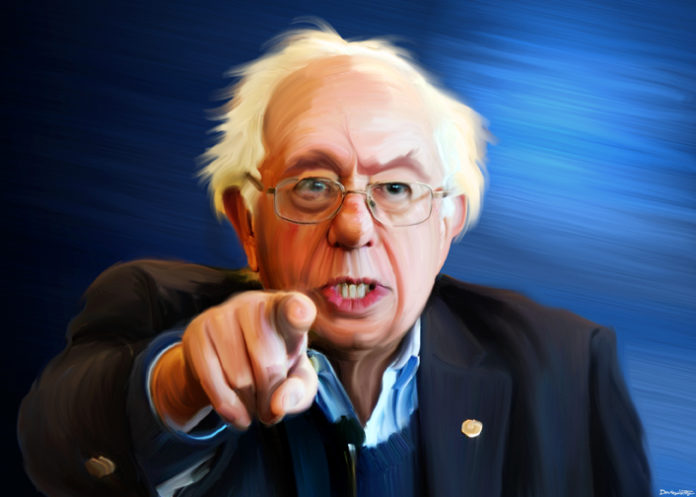For Bernie Sanders, 2020 is a whole new ballgame. This time, he doesn’t face a heavily favored, lavishly funded foe in the primaries. He can appeal to a party that has moved left. His signature issue, “Medicare for all,” is virtually liberal orthodoxy. He has even more donors, who have showered his campaign with donations.
Here’s what hasn’t changed: Bernie Sanders. He is still the same overbearing ideologue he has always been, a self-righteous scold who ignores the achievements of capitalism and the failures of socialism while offering voters a rich menu of wild promises.
Not that I can’t find a few redeeming positions. Sanders opposed the Iraq War. He has supported legal status for immigrants brought here illegally as children. He opposed the surveillance of domestic phone records under George W. Bush and Barack Obama. He regards the idea of intervening militarily in Venezuela as insane.
But his flaws are deep and irreparable. Sanders is a staunch leftist who demonstrated his affinity for Marxism in the 1980s, when he extolled the public transportation and cultural programs produced by Soviet communism, gushed that Fidel Castro had “totally transformed the society” of Cuba, and excused the thuggish tactics of the Marxist-Leninist Sandinista regime in Nicaragua.
His economic policies betray his crude image of capitalism — which may have generated great inequality but has also produced a vast increase in living standards, even for the poor. A wiser student of history would notice that in the U.S., it was largely private enterprise, not central planning, that “totally transformed the society.”
The reason social democracies in Europe can redistribute wealth is that their largely capitalist systems have created so much of it. Sanders takes a hostile view of America’s reliance on free markets, but countries such as Germany, Britain, Canada and Denmark enjoy roughly as much economic freedom as the U.S. does.
On specific policies, Sanders is habitually in a tug of war with reality. His “Medicare for all” plan, despite the name, would be far more generous in its coverage — and far more expensive per patient — than the existing Medicare program. It would also provide more benefits than the single-payer Canadian system that enchants American progressives.
“Even by Sanders’ own estimate his plan would require a larger increase in federal taxes than the United States has ever had in peacetime,” notes Princeton scholar Paul Starr in the left-of-center American Prospect magazine.
Sanders claims it would reduce the nation’s health care spending through cost controls and administrative savings. An analysis by the liberal Urban Institute, however, found that it would actually raise total health outlays by $6.6 trillion over a decade.
When it comes to international trade, there is not much daylight between him and Donald Trump. The president had words of praise after Sanders announced his candidacy: “I am being very tough on trade. He is tough on trade.”
Sanders’ views are consistently removed from reality. In 2016, economists Christina Romer (who chaired Obama’s Council of Economic Advisers) and David Romer concluded that the effects Sanders predicted from his overall economic program were “not just implausibly large but literally incredible” and that the real impact would be “likely small and possibly negative.” The resemblance to Trump’s blue-sky promises is hard to miss.
When it comes to global warming, Sanders is willing to take strong action to curb carbon emissions. But he sabotages that worthy goal by vowing to eliminate nuclear power — which provides a fifth of our electricity and emits no greenhouse gases.
Policy is not everything. Trump has reminded Americans that in the Oval Office, qualities such as restraint, moderation, good humor and flexibility are indispensable. These are not traits generally attributed to Sanders. He brings to mind Winston Churchill’s description of Secretary of State John Foster Dulles as a bull who carries his own china shop around with him.
Sanders is no Trump, but his humorless dogmatism bodes ill both for how he would formulate policy and for how he would try to achieve it. Early in Sanders’ time in Congress, the famously liberal Rep. Barney Frank accused him of a “holier-than-thou attitude” that “really undercuts his effectiveness.” In 2016, Frank said, “Bernie Sanders has been in Congress for 25 years with little to show for it.”
In the Democratic primaries, liberals and progressives will be able to vote for a host of candidates who have shown sensible judgment, pragmatic skills and the ability to appeal beyond the hardcore faithful. Or they could choose Sanders.



























